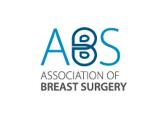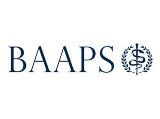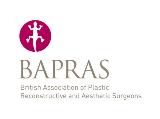


There are currently two main areas of concern for patients with, or considering having, breast implants inserted for either cosmetic or reconstructive reasons.
One concern is about Breast Implant Associated Anaplastic Large Cell Lymphoma (BIA-ALCL). The World Health Organisation (WHO) defined BIA-ALCL as a disease in 2016 and our current information suggests that BIA-ALCL happens with 1 in every 24,000 implants inserted in the UK. Athough it is not yet known exactly why, significant variations in incidence rates are being reported between countries who have reported cases of BIA-ALCL. By comparison Breast cancer, which is not related to having breast implants, occurs in 1 in 8 women in the Western World. BIA-ALCL typically presents on average 8-10 years after breast augmentation with visible, painless swelling of a breast over a period of a few weeks due to fluid accumulation called a seroma, or less frequently with a lump in the scar tissue (‘capsule’), which can develop around any breast implant. In July 2018 the MHRA advised that the very small risk of ALCL should henceforth be discussed with all patients considering having breast implants for either cosmetic or reconstructive reasons.
BIA-ALCL is usually treatable and curable with surgery, although other treatment may be required. Whereas BIA-ALCL continues to be a rare disease in the UK, we are monitoring both UK and international events closely with the UK regulator, the Medicines and Healthcare products Regulatory Agency (MHRA). The full clinical details are only known in approximately one third of BIA-ALCL patients worldwide. It is therefore essential to obtain as much information as possible about each case to help understand this disease. The national Breast and Cosmetic Implant Registry (BCIR) (https://digital.nhs.uk/data-and-information/clinical-audits-and-registries/breast-and-cosmetic-implant-registry) is in regular contact with other international Registries, and it is important that UK government funding should continue to support this.
Advice for clinicians and patients in the UK on BIA-ALCL has been published by MHRA, produced with the help and advice of world renowned, independent experts, including toxicologists, bacteriologists, material scientists, lymphoma specialists, radiology specialists, representatives of breast cancer charities and surgeons from our Associations:
www.gov.uk/guidance/breast-implants-and-anaplastic-large-cell-lymphoma-alcl#current-uk-advice
The UK Plastic and Breast Surgery associations are closely involved in a growing international collaboration by the healthcare community to collect the information needed to find out more about breast implants and inform our patients. Patient safety is of paramount importance and our guidance will be updated in the light of new evidence.
Current advice from MHRA and all regulators world-wide is that those patients who have breast implants do not need to have them removed as the risks associated with surgery to remove implants and capsules outweigh the risks of potential disease. However, should patients develop any breast symptoms such as swelling, lumps or pain they should seek immediate advice from their family doctor and or operating surgeon and should be referred for assessment.
BIA-ALCL and BII/ASIA are believed to be two separate and unrelated entities.
Another concern is whether implants can make some people ill. Breast Implant Illness (BII), or Autoimmune Syndrome Induced by Adjuvants (ASIA), is a collection of multiple symptoms, most of which are common in the general population who do not have breast implants. BII/ASIA is not a WHO recognized disease, but there is much ongoing work and an enormous amount of data being collected and analysed internationally to establish if BII is a classifiable disease or not. Our three surgical Associations are represented on the Plastic, Reconstructive and Aesthetic Surgery, Expert Advisory Group (PRASEAG), which advises the MHRA. The group also has a representative on the International Global Network Forum and ICOPLAST (International Confederation of Plastic Surgery)
The MHRA is also looking at the published literature on both BIA-ALCL and BII. The PRASEAG expert advisory group will review the literature to build on the knowledge already gained as part of the Independent Review Group’s (IRG’s) report, which was commissioned by the Chief Medical Officer in the 1990s. This detailed review looked at the safety of breast implants from a number of different perspectives and considered evidence from a number of sources. The IRG published its report in 1998 (link to IRG report) finding there was no evidence of a link between silicone breast implants and the symptoms reported at that time.
The MHRA is collecting data from surgeons and the public via their own Yellow Card system (https://yellowcard.mhra.gov.uk). This is an important resource to help them understand the numbers of patients and types of conditions involved.
Advice for individuals with breast implants:
If you have breast implants and experience any problems with your breasts, in particular swelling, lumps or change in shape, then you should seek medical advice.
If you think your breast implants are causing general health problems you should seek the advice of your original implanting surgeon or the hospital/clinic where the implant operation took place. If you cannot contact either of those, please consult your GP.
The MHRA understand that you may not have much information on your implants but the more information you can provide the better. Ideally this includes:
- Details of the breast implant/tissue expanders you have at present (manufacturer, model, serial and lot number).
- Date they were put in and the dates of any other surgeries for any other removals/re-implantations, which you have had.
- How long each implant has been in you.
- Details of your symptoms or rupture of implants (device failure).
- Details of any medically diagnosed ‘autoimmune’ conditions and the date of onset.
- The reasons for your original surgery (i.e. reconstructive or cosmetic).
If you are reporting issues but you don’t know the details of your implants, it would be very helpful if you could contact your implanting surgeon for details of the manufacturer and model.
However, if that is not possible, please be reassured that your report will still be added to the MHRA database, which will help better understanding of the situation.
For help reporting via yellow card, please watch this video on how to report a problem with a medical device – A Yellow Card guide for patients.
Advice for patients with Allergan (McGhan / Natrelle) implants with a textured Biocell® surface:
Following a ruling by the French regulator over the possible link with Allergan’s textured surface (Biocell®), the CE mark was not re-awarded for this product in December 2018. Allergan subsequently recalled all of their textured implants Worldwide. Their recall was for implants already sent out to distributers and hospitals. It was not a recall of implants in patients and does not change the advice from the MHRA regarding patients currently with implants.
Links to ABS and Australian government websites
ABS website: https://associationofbreastsurgery.org.uk/clinical/bia-alcl
Australian Government: https://www.tga.gov.au/breast-implant-associated-anaplastic-large-cell-lymphoma-bia-alcl
Further resources
- ABS latest guidance
- ASPS BIA-ALCL resources
- ASPS sample letter to patients
- ASPS informed consent language
- 5 things to know about breast implants
- ASPS BIA-ALCL physician resources
- ASPS leaflet for patients
- ASPS summary and quick facts